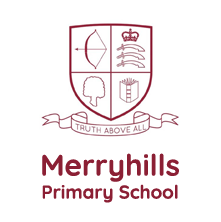Religious Education
The UK has a rich heritage of culture and diversity.
This is continuing today in an era of globalisation and an increasingly interdependent world. Religion and belief for many people forms a crucial part of their culture and identity.
Religion and beliefs have become more visible in public life locally, nationally and internationally. The impact of religion on society and public life is constantly brought to public attention through extensive media coverage. The rapid pace of development in scientific and medical technologies and the environmental debate continue to present new issues which raise religious, moral and social questions. The internet enables learning and encourages participation in public discussion of issues in a new and revolutionary way.
Religious Education (R.E) at Merryhills has adopted an enquiry based learning approach whereby children are able to ask deep and meaningful questions about religion in a safe and respectful environment. We follow the Locally Agreed Syllabus, ensuring all children receive the statutory entitlement for R.E. The syllabus allows for progression and depth of understanding across the key stages, with the opportunity for children to reflect on their learning at the end of each unit. This is expressly planned for across the curriculum. Furthermore, our syllabus significantly contributes to the British Values Agenda and SMSC development and sits alongside our own school ethos and values.
A wide range of activities develop skills such as investigation, interpretation and analysis. Our planning of lessons allows children to appreciate how different approaches such as role play and drama, discussion and debate, artwork and reflection, support their learning effectively. Pupils of all ages are given the opportunity to share ideas and beliefs articulately within a respectful learning environment.
Children at Merryhills have the opportunity to further develop their religious literacy and understanding of faiths through educational visits. Our vision is to develop strong links with religious institutions within our community and further afield and the curriculum has been designed so that each year group participates in R.E. educational visits.
Withdrawal from Religious Education
We all have a responsibility to ensure RE takes place in an atmosphere that is open and respectful, free from ignorance, prejudice, bitterness and rancour. We model these values by taking part. Withdrawal from all or part of RE in our school is therefore, in our view, a cause for regret. However, we respect parents’ rights that their child should be wholly or partially withdrawn from taking part in any RE in the school. We understand that parents are not obliged to give reasons for the withdrawal but hope that being given the opportunity to discuss their concerns many will want their child to continue with our approach to RE. Parents who then still choose to withdraw their child(ren) from RE are asked to state this in writing annually to the Headteacher. Parents can provide material connected to their own faith for their child to work on while withdrawn from the RE offered by the school (provided it does not conflict with the fundamental values of the school). Otherwise children will be supervised in another classroom or outside the classroom doing reading or private study.
When religious or spiritual matters come up in other areas of the curriculum – both planned and spontaneously – this does not constitute RE in the legal sense. Parents cannot insist that their child be withdrawn every time such issue arise as these issues are often helping the child in their spiritual, moral, social and cultural development. There is also no right of withdrawal from the National Curriculum subjects if what is being studied has a bearing on religion.




